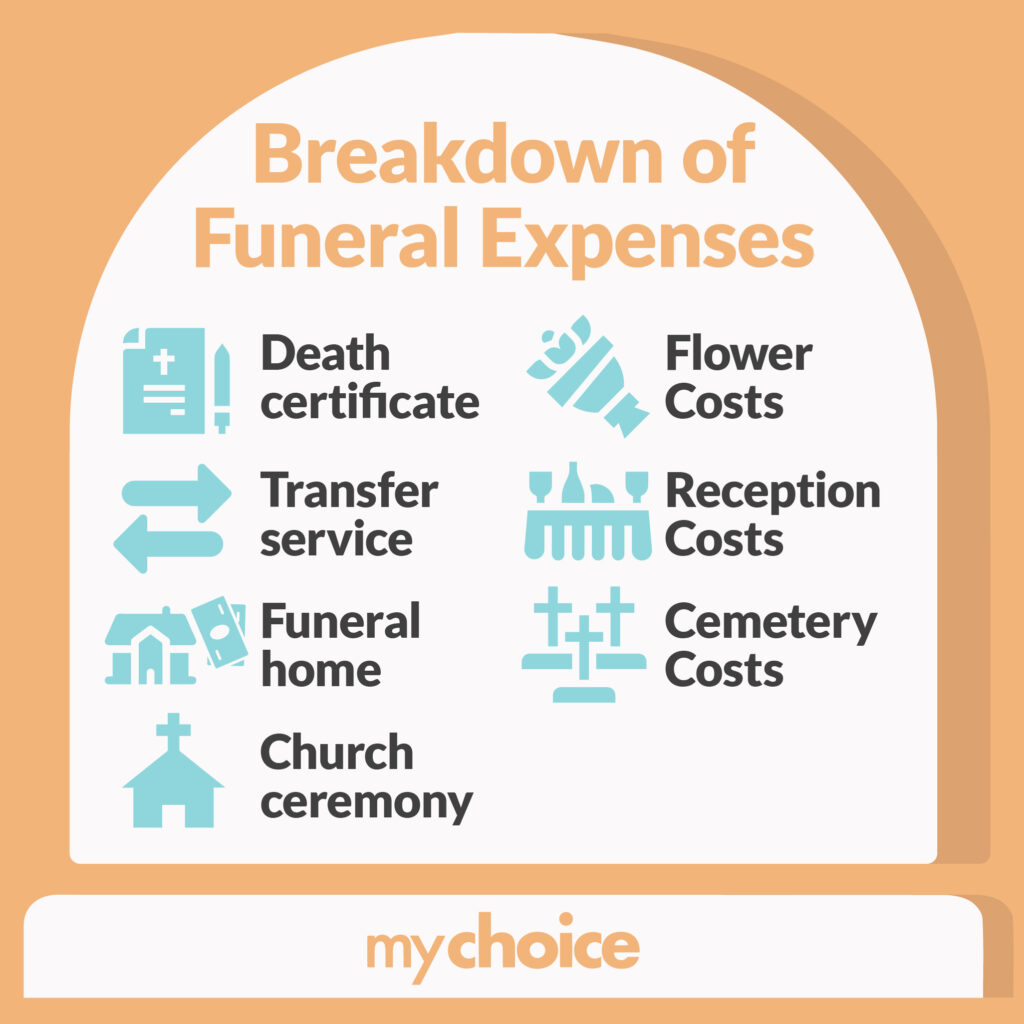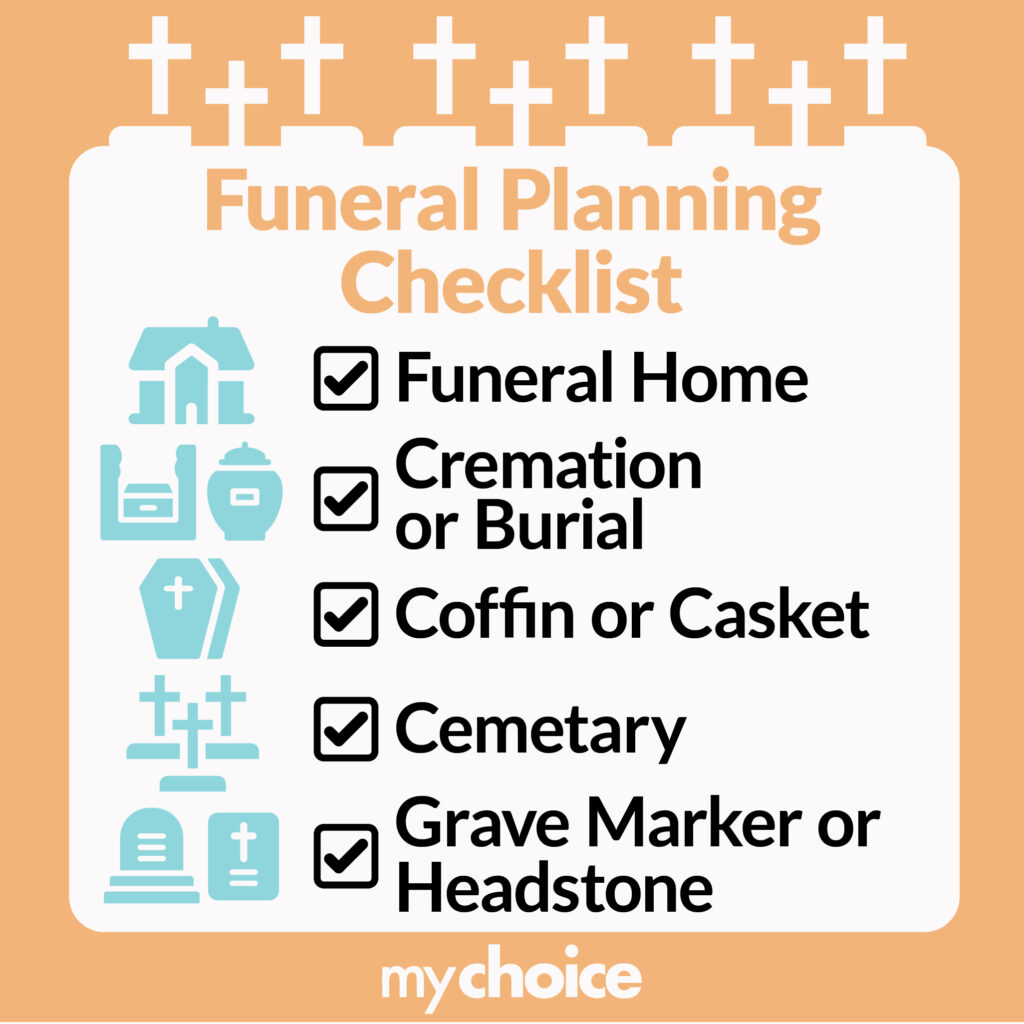Death is an inevitable part of life, and when it happens, it’s important to give your loved one a proper send-off. However, the cost of a funeral can be overwhelming, so it’s essential to know what to expect when planning one.
In this article, we’ll take a closer look at the average funeral costs in Canada, the different expenses involved, and the various options you can use to pay for a funeral.
Average Funeral Costs in Canada by Province
The average cost of a funeral in Canada is between $8,000 to $9,000, but it largely depends on a variety of factors, such as your province’s cost of living, special burial requests, and even the season.
For example, the average funeral cost in Ontario is anywhere between $5,000 to $15,000. That figure could be even higher if you live in an expensive city like Toronto, as the cost of living in Toronto is quite high.
Burial requests and the time of year can also affect the cost. For example, a winter burial is, on average, $100 more expensive.
Let’s take a look at the average funeral costs by province. Keep in mind that these are standard costs – any unique requests or expensive burial options will cost more.
| Province | Cost |
|---|---|
| Ontario | $5,000 – $15,000 |
| Quebec | $5,000 – $11,000 |
| British Columbia | $2,000 – $12,000 |
| Alberta | $4,000 – $12,000 |
| Manitoba | $5,000 – $10,000 |
| Saskatchewan | $7,000 – $11,000 |
| New Brunswick | $5,000 – $10,000 |
| Newfoundland and Labrador | $5,000 – $10,000 |
| Nova Scotia | $6,000 – $12,000 |
| Prince Edward Island | $6,000 – $11,000 |
Breakdown of Funeral Costs
Though money is likely the last thing anyone wants to think about when a loved one dies, funerals can get quite expensive, so it’s best to be prepared. If you’re asking, “How much does a funeral cost?”, take a look at the expenses involved below:
| Death certificate | Cost |
|---|---|
| Registration | $5,000 – $15,000 |
| Transfer service | $5,000 – $11,000 |
| Funeral home | $2,000 – $12,000 |
| Church ceremony | $4,000 – $12,000 |
| Flowers | $5,000 – $10,000 |
| Reception | $7,000 – $11,000 |
| Cemetery costs | $5,000 – $10,000 |
| ESTIMATED TOTAL | $5,000 – $10,000 |
See a more detailed breakdown of each expense below:

Paying For a Funeral
There are a few ways to pay for a funeral for a loved one. If you have the money, you can pay it all upfront yourself. However, the reality is that many people these days don’t have $5,000-10,000 lying around and might not be able to pay for it, especially if the death was sudden.
So, how do you pay for a funeral, and what happens if you can’t afford a funeral in Canada? Luckily, there are some options available. Let’s take a look at what you can do.
Funeral Planning
Planning for a funeral can be overwhelming, especially if a loved one passes unexpectedly and their funeral arrangements aren’t taken care of. Whether you’re planning for your or a loved one’s funeral, here are some things you’ll need to think about:

Affordable Burial Options
Burial costs can quickly shoot up. Because of the rising costs of burials in Canada, more and more people are choosing direct cremation or expedited burials.
If you’re choosing the burial route, you have the following options:
- Expedited burials: The body is buried immediately after securing a death certificate. It typically costs $3,000 to $5,000.
- Direct cremation: The deceased is immediately cremated and the ashes are sent via mail. It is the cheapest option, costing $500 to $1,000.
What If You Can’t Afford a Funeral?
If you can’t afford a funeral in Canada, there are many Funeral Assistance Programs available to help you cover the costs.
If you’re not eligible to claim those benefits, your municipal or provincial government will help cover basic funeral costs. That includes paying for cremation or a casket and cemetery fees.
What Is the Cheapest Way to Bury Someone?
The cheapest way to bury someone is direct cremation, which costs up to $1,000. This covers the cost of cremating the deceased and does not include funeral services or a ceremony.
Alternatives to Traditional Burials
You’ve possibly heard about people being buried at sea or shot into space. These are considered unique end-of-life requests.
Below are some alternatives to traditional funerals:
Final Thoughts
All-in-all, funerals can be quite costly. However, with the right planning, they don’t have to be. For example, putting money aside monthly is one way you can prepare for end-of-life scenarios.
If you’re looking for a way to help cover funeral costs, prepare ahead of time. You can even buy a life insurance policy that ensures your family will be taken care of when you pass.








